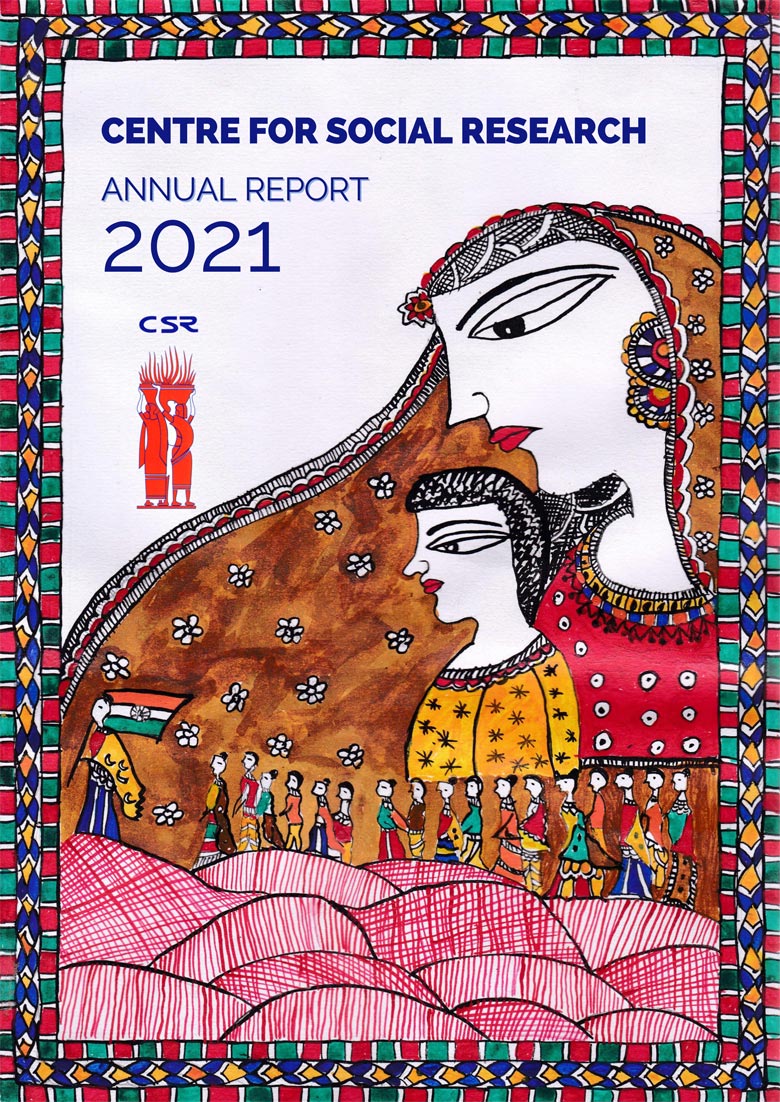 |
TEAM CSR |
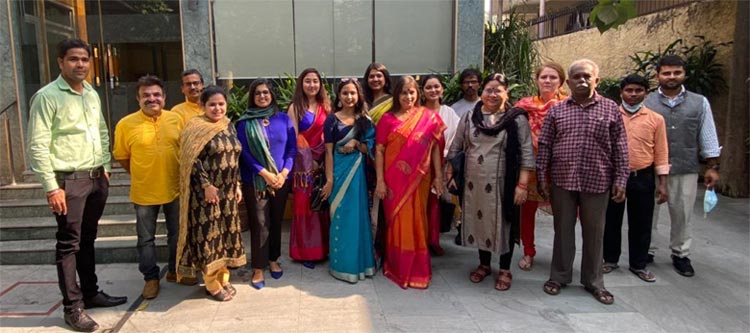 |
| From L-R: |
Manoj Kashyap, Sandeep Gupta, Anil Jha, Ritika Bhatia, Jyoti Vadehra, Appurva Bhandari, Shruti Das, Tanya Thakur, Ranjana Kumari, Archana Hazarika, Manasi Mishra, Valerie Hohman, K.K Balakrishnan, Polikar, Vijay |
|
Our Mission
For nearly four decades, the Centre for Social Research is working across India as an esteemed research institute, lobbyist, advocate and advisor to government institutions. The organization operates at the local, regional and national levels in an effort to guarantee the rights of women & girls, further deepening the understanding of social issues from the lens of gender. |
|
Our Vision
To build an understanding of social issues with the lens of gender to enhance the capacities of individuals, communities and institutions for creating a humane, equitable and gender-just society. |
|
| |
|
CONTENT:
|
|
|
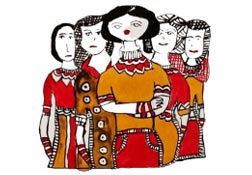
1,07,400
Grassroots stakeholders
reached across India |
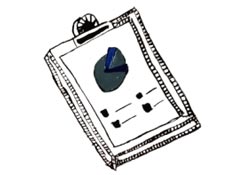
24,100
Research on women's
skill, training, sensitization &
digital presence |
| |
|
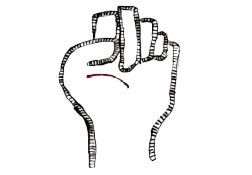
1,15,100
Advocacy on women's rights
including: health, education etc |
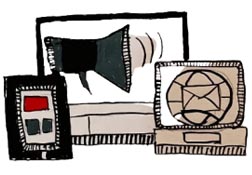
1,12,700
Individual reached
via Digital interventions |
|
| The Centre for Social Research continues to work across the country with multiple stakeholders impacting lives through its development practice, Research and, Advocacy based work in the field of women empowerment and gender equality |
|
|
Women’s Relief Response To Covid-19 Crisis
|
 Centre for Social Research (CSR) in collaboration with Netherlands Embassy, New Zealand Embassy, Australian Aid, and The Asia Foundation, New Delhi supported the implementation of “Women’s Relief Response to the COVID-19 Crisis'' in 11 districts of Delhi and 5 districts of Haryana.
Since the outbreak of the Covid-19, the emerging data and reports from all the fronts show that violence against women and girls has intensified among all sections of society. As the National Agency of NCW, CSR has been conducting 24×7 E-Counseling of domestic violence survivors and their family members; training sessions on the Sexual Harassment of Women at Workplace (Prevention, Prohibition and Redressal) POSH Act, 2013 among ASHA, ANM, Aanganwadi workers and active community members of the concerned districts. We have conducted 10 such training sessions’ & trained more than 400 frontline healthcare workers.
To address the health issues arising from COVID, CSR conducted capacity-building programs targeting community health workers, primarily women.
The "Women's Access to Public HealthCare Facilities” webinar officiated by Indian Medical Association was also conducted with more than 200 participants.
To provide psychosocial support for the mental well-being of health care workers, we conducted 10 sessions with Dr Nimesh G. Desai. Director, NIMHANS and around 250 Asha, Anganwadi, ANM workers discussed the issues they faced during the pandemic. 3000 hygiene kits were distributed to the beneficiaries to counter the threat posed by COVID-19.
CSR with all its stakeholders also conducted an online consultation as a concluding activity to review all the interventions that were undertaken throughout the program.
|
|
PROJECT SNAPSHOT
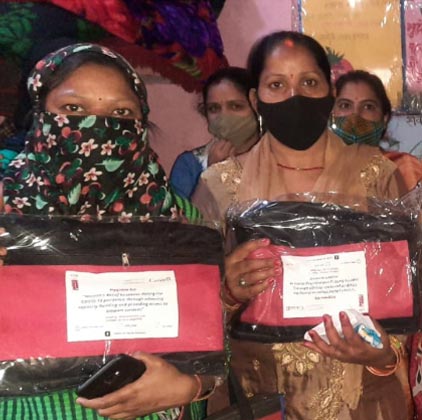 |
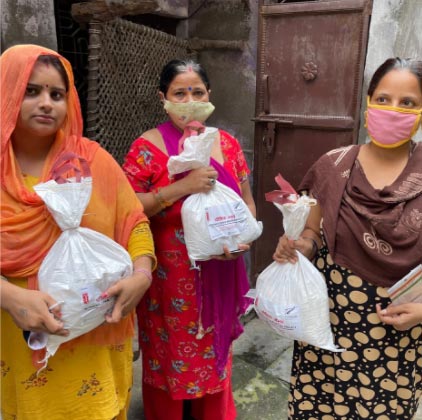 |
13,500
Hygiene kits packets were distributed to Hygiene kits packets were distributed to frontline healthcare workers and target front line healthcare workers and target communities communities. |
2000
Dry ration distributed to frontline healthcare Dry ration distributed to frontline healthcare
workers and target communities. |
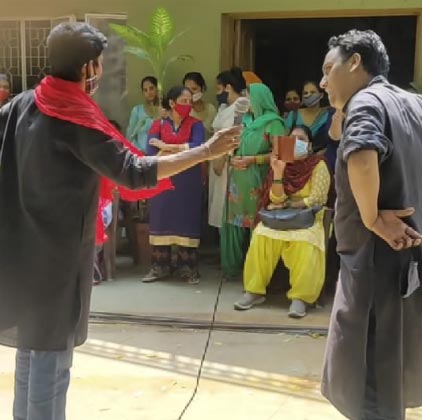 |
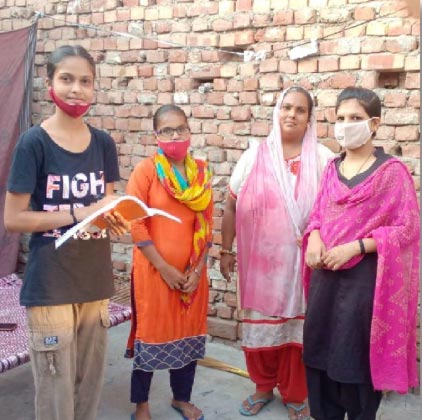 |
16 Districts:
11 Delhi | 5 Haryana
Awareness and mobilization of communities through Nukkad Natak on countering misinformation and vaccination hesitancy. |
240
Youth mobilizers trained for Covid-19 awareness and accelerate the vaccination drive. |
|
Girl's School Retention And Skill Training Program |
Centre for Social Research is turning its attention to the long-term threats to women’s rights and development. The health, economic and welfare risks faced by young girls in gender critical districts in India includes child marriage/early marriage, reduced investment in girls’ education by families prioritizing boys over girls for educational prospects and opportunities.
|
|
For a decade, women’s work- force participation rate is declining in India reaching to a low of 23.3% in 2020.
We believe, there is a strong co-relation between girls’ retention in school with delayed age of marriage. Thus, it is integral to support investment in girls’ education and eradicate the negative outcomes for young women.
CSR’s intervention focuses on strengthening educational structures to promote girls’ school enrollment, retention and access to skill training programs to enhance their agency. CSR is engaged with School and District level authorities in two gender critical districts of Harayana, i.e. Kurukshetra and Mahendragarh.
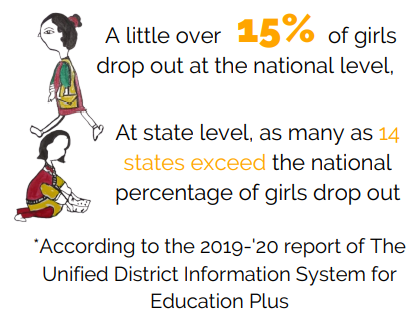
*According to the 2019-'20 report of The
Unified District Information System for
Education Plus |
|
|
Sports for Empowering Girls
|
|
“A WOMAN'S HEALTH IS HER CAPITAL” - ASIFA, VOLLEYBALL PLAYER, GURUGRAM
Centre for Social Research has been implementing Phase-3 of the program; "Sports for Empowering Girls in 5 Gender-Critical Districts of Haryana" in collaboration with the GAIL India.
The program commenced by conducting an enrollment drive at Govt. Senior secondary school, Kadipur in the month of November. During these unprecedented times, the CSR team reached out to the girl sports players and their families in Gurugram, particularly those who had lost their sources of livelihood due to the lockdown. Our team collaborated with the coach and has enrolled 100 girls in the program.
After the easing of COVID-19 restrictions, our team reached out to the District Sports and Youth Affair Officers to assist in the distribution of nutritional intake to players
|
|
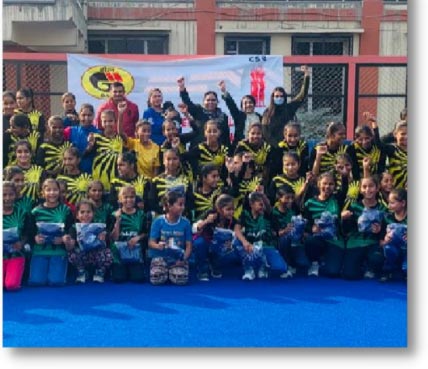
Girl's Hockey Academy, Shahbad, Kurukshetra, Haryana
Our continuous efforts enabled the successful start of nutritional drive in all 3 districts, i.e. Gurugram, Kurukshetra, Mahendragarh for 160 girl hockey and volleyball players. We were also able to conduct 3 enrollment drives in the Gurugram. Kurukshetra and Mahendragarh districts. Both the nutritional drive and enrollment drive received great appreciation from the district sports authorities and the participants. In Kurukshetra, former international hockey players graced the occasion to motivate and felicitate the players. The team and coaches conducted these activities by carefully following all safety guidelines for COVID-19. We are continuing with the program and looking forward to district matches, distribution of sports equipment and scholarships in the upcoming months. |
|
Office Assistant Training Program
|
|
Trainingon Gender Sensitization and the Prevention of Sexual Harassment of Women at Workplace (Prevention, Prohibition and Redressal) Act, 2013 (POSH Act) is an ongoing work here at the Centre for Social Research. In the past year, we have conducted training with Kurukshetra Administrative officials. Conducted by the head of the Research Department, Dr Manasi Mishra.
Participants included the members of the Internal Committee (IC), and other employees from the Kurukshetra branch.
Given the unprecedented times, the training had to be conducted via the online medium for IIT Jammu, Feedback Infra and National Institute of Defence EstatesManagement.
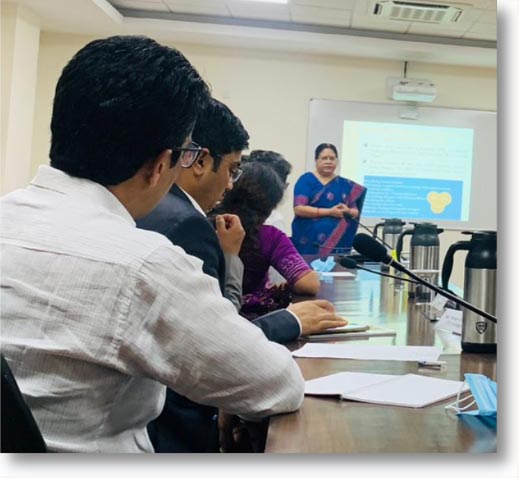
National Institute of Defence Estates Management, Delhi |
|
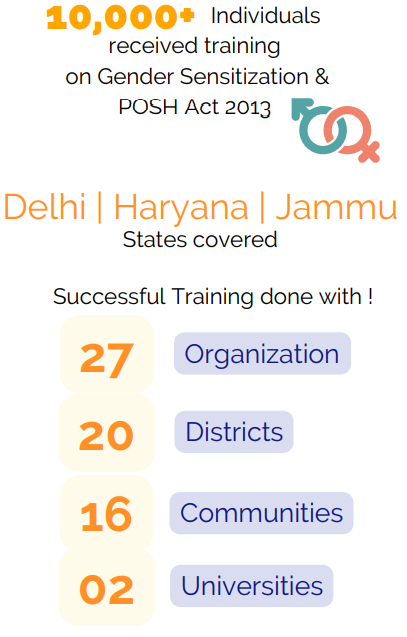
The first half of the training dealt with gender concepts and the second half with Sexual Harassment of Women at Workplace (Prevention, Prohibition and Redressal) Act (2013). Dr. Manasi Mishra also shared a few case studies with the participants which were discussed and briefed upon. The outcomes of the trainings were enhanced awareness of the law and an open forum discussion on gender equality and sexual harassment.
As the External Member of various ICs, Dr. Mishra has dealt with 10 cases this year and finalized the reports.

|
|
|
|
Due to the pandemic and subsequent lockdown imposed, approx 27 million youth in the age group of 20-30 years in India lost jobs and earning opportunities in April 2020, as reported by the Centre for Monitoring Indian Economy (CMIE). We believe that skill-based training programs are essential to ensure the continuation of the learning process and additional support to assist Indian youth to acquire the required skill sets to help them re-enter the workforce.
In the year 2018, CSR launched the "Centre of Excellence for Skill Development" with the aim of providing access to skill courses and employment opportunities to the youth from marginalized sections of society.
During the pandemic, our skill training sessions transitioned from the traditional classroom in-person training to online platforms, in order to continue the support and youth’s capacity building from the safe and comfortable environment of their home.
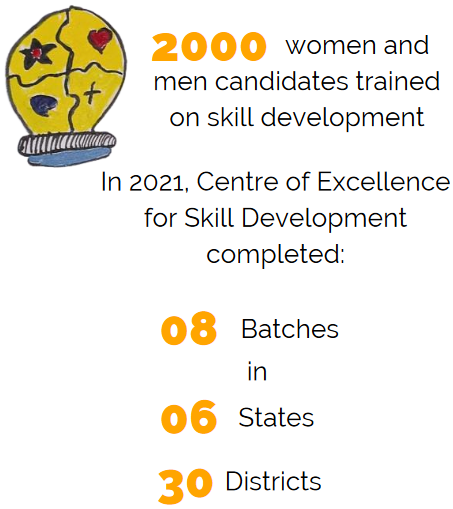
| |
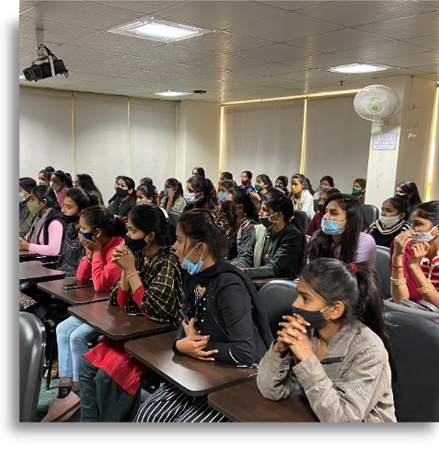
WSD Centre, Gurgaon
During this year, we have successfully trained 2000 candidates and also conducted an e-assessment for the same. Trainers were also facilitated with the e-certificates from MEPSC.
Placement drives and successful linkage of all the trainees to job opportunities were also completed during this time.
Additionally, workshops were conducted to groom trainees for the interviews and extended post-placement support was also ensured.
CSR is focused on creating the best outcomes for the trainees and works closely with all the concerned stakeholders. We are presently ready for our next batch and are mobilizing more students for both online and offline training for the same.

|
|
Gender Mainstreaming In The Foreign Policy Of India
|
|
The Centre for Social Research's ongoing study examines how gender mainstreaming adds value to India’s foreign policy engagement. Focusing on India’s engagement with other SAARC nations in the areas of:
1) Health & Humanitarian Aid
2) Environment and Climate Change
3) Trade and commerce
The goal of the work will be twofold
- To assess the Indian government’s interest and openness for formal integration of gender in foreign policy.
- To generate an informed discussion on the scope for gender mainstreaming in the aforementioned three policy areas.
The research project is a pilot study.
In addition to addressing the scope for gender integration primarily in the three focus areas, it will also bring together key stakeholders for a policy dialogue to present the research and explore further steps to promote gender mainstreaming in various aspects of Indian Foreign Policy. |
|
The focus of the project will be on engaging representatives of India’s Ministry of External Affairs (MEA), also building evidence and domestic support for the integration of gender concerns in foreign policy, with an emphasis on regional cooperation.
The main instrument for data collection throughout the study is structured interviews with a sample size of 70 interviews across all target groups including Indian Government Officials, Research Institutes, Gender & International Experts and Foreign Ministries/Personnel.
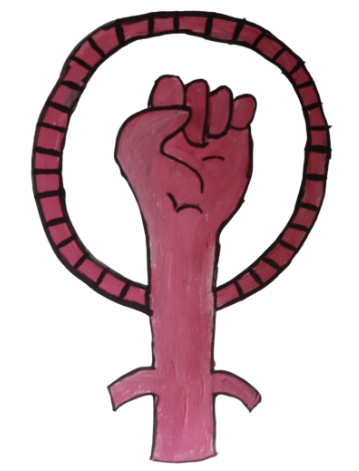
|
|
Women Political Leadership
|
|
"Women in every part of the world continue to be largely marginalized from the political sphere, often as a result of discriminatory laws, practices, attitudes and gender stereotypes, low levels of education, lack of access to health care and the disproportionate effect of poverty on women." [UN General Assembly Resolution on Women’s Political Participation, 2011]
In order to increase women’s role in policy decisions and in governance at the highest level, 108th Constitution Amendment Bill, the Women’s Reservation Bill was introduced in Lok Sabha on Sept 12, 1996. After several years of social mobilisation and campaigning, the Women’s Reservation Bill was finally passed by Rajya Sabha in the year 2010. It was a moment of jubilation for each and every woman in the country. However, that did not last long because the bill has not been tabled in Lok Sabha by any of the successive governments since then, thereby making it a lapsed bill.
In order for it to become an act it needs to be passed by both houses of Parliament, and by more than half of the State Legislatures. |
|
The department of Political Leadership designs strategies and undertakes advocacy and campaigns for the political empowerment of women in the country.
During the last year, CSR representatives connected with youth on several online consultations and webinars for promoting women political leadership. One such webinar on "Women’s Leadership in Times of COVID-19" saw Head of Research and Knowledge division Dr Manasi Mishra deliver a lecture on “Breaking the Glass Ceiling" and encourage young girls even during the tough times of Covid.
CSR's Senior Counsellor joined a meeting hosted by Human Rights Law Network to plan a national level campaign for addressing issues of Domestic Violence (DV) and Intimate Partner Violence (IPV), focusing on reaching out to maximum people through social media campaigns with information on laws to assist women, survivors of DV and IPV, during lockdown. |
|
Gender, Water And Climate Change
|
|
The Gender, Water, and Climate Change department aims to focus on the intersections of climate change, global warming, and water and its effects on women, who are responsible for management of water at the household level. There have been numerous projects going on in various districts of Rajasthan to enable the local women to become water leaders - for the conservation of water. With the COVID-19 pandemic and subsequent lockdowns across the country, there was a hindrance in working locally with the women, but the project continued to its fruition with online consultations at both state and national level.
We carried out field visits to Dhadikar, Alwar, Rajasthan on August 11th, 2021. The overall purpose of the visit was to collect perspectives from the field on their learnings from one of our projects related to sustainable water resource management and restoration of water resources, as well as feedback for growth in the future.
I) SHGS FOR SUSTAINABLE WATER RESOURCE MANAGEMENT AND RESTORATION OF WATER RESOURCES – ALWAR, PHASE 3
The project started in 2018 from piloting in Alwar to implementation.
Similarly, in 2020, CSR and Honda collaborated to expand and replicate the learnings from the earlier years of their work in other parts of Alwar.
In 2020, the Centre for Social Research (CSR) in collaboration with Honda Foundation India, aimed at extending support and assistance to to the Self- Help Groups |
|
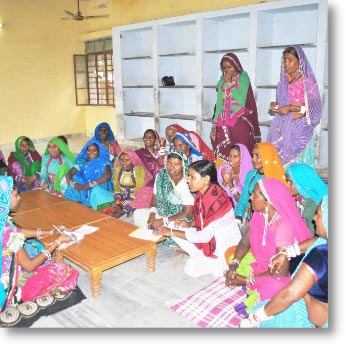
Honda Project: Alwar, Rajasthan
Gender, Water And Climate Change (SHGs) women from Alwar region, where the targeted villages were Dhadikar and Hazipur in Umaren. In this phase conducting leadership training and site work in two selected villages based on the needs assessment were undertaken in 2 potential villages from Alwar district. January 2022 onward, in Phase 4 - the project aims at conducting leadership training and site work in different villages based on the learnings from 2020 project implementation.
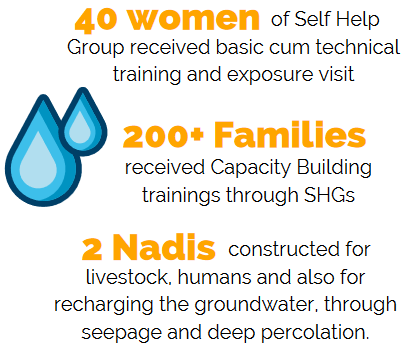
|
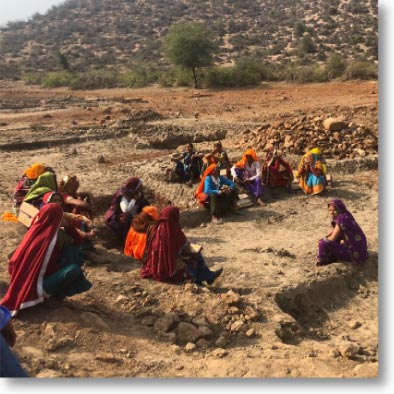
Honda Project: Alwar, Rajasthan
1150 community
members
Benefitting from the construction of Medh Bandh in Kali Khol Village
4500 community
members
Benefitting from the construction of Nadis (ponds) in Aravalli foothills, Alwar
2) HAR GHAR JAL PROJECT: S.A.S NAGAR DISTRICT - PUNJAB
We aimed at implementation of the Jal Jeevan Mission initiative “Har Ghar Jal" in Mohali district, Punjab. We are empaneled with the Department of Water Supply and Sanitation, Punjab to take it forward and the project is yet to start in January 2022. |
|
3). SUPPORTING, STRENGTHENING, AND LEVERAGING GOVERNMENT JAL JEEVAN MISSION (JJM) FOR 100% WATER SUPPLY TO ALL RURAL HOUSEHOLDS - KARNATAKA
Currently, Karnataka State has 91.19 lakh rural homes, with just 28.44 lakh (31.2%) having access to running water. This figure is insufficient and unsatisfactory, with more than half of the population lackig access to tap water and safe drinking water. Karnataka has been successful in providing piped water to schools, Angwandi centres, Gram Panchayat structures, and Ashramashalas, (with over 90 percent coverage across these structures).
This indicates a good step towards women empowerment and urges young girls to enroll in schools, who would otherwise travel long distances to collect water for the family. Still, greater community access to safe, clean drinking water across the state is lagging greatly. To meet the 2024 targets under "Har Gar Jal", intensive mobilization of community and household piped connections is required. The Union Jal Shakti Ministry made observations regarding the lag in Karnataka, especially in speeding up the implementation process of Jal Jeevan Mission based activities and actions.
To support this objective CSR proposes the following project logic and activities for Karnataka with the aim to support Karnataka State government with capacity and understanding at the local level on the importance of Jal Jeevan Mission with safe water for both drinking and agricultural purposes.

|
|
Online Safety And Security
|
We Think Digital
Since the daily lives of children have come online, we noticed that kids are vulnerable to abusers who use the internet to conduct inappropriate behaviour. Keeping this in mind, we organized Digital Safety Workshops to outline threats faced online and tools that can empower children to become compassionate and responsible online users.
Project Goal:
- Outreach to maximum number of students across India.
- Generate awareness among children on the importance of digital citizenship and its components.
- Train children to identify and combat dangerous situations online.
- Empower students with best practices for a secure and safe experience online alongside positive and respectful communication.
- Engage and educate key stakeholders in the importance of digital safety training for students.
The Digital Safety & Online Well-Being workshops catered to students from the age group of 7-18 years.
Since children are exposed to multiple digital threats, we at CSR, conducted awareness building workshops with more than 200 workshops and trained more than 200,000 students across India with safety & security tools and best practices. |
|
We have also collaborated with the Central Board of Secondary Education (CBSE) to implement the training workshops with CBSE schools across India.
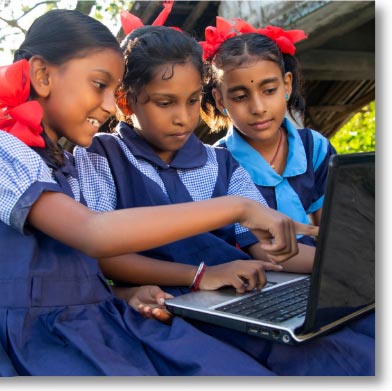
Digital Safety And Online Well-Being for Elementary School Children
As per requests from our partner educational institutions, a conglomeration of teachers, principals and educators we conducted Digital Safety and Online Well-being Workshops for elementary school children with modules tailored to their specific needs. With our motto of 'No Chld Left Behind, we have been successful in reaching out to children even from the remotest of areas in the country through individual as well as organizational collaborations. |
|
We Think Digital
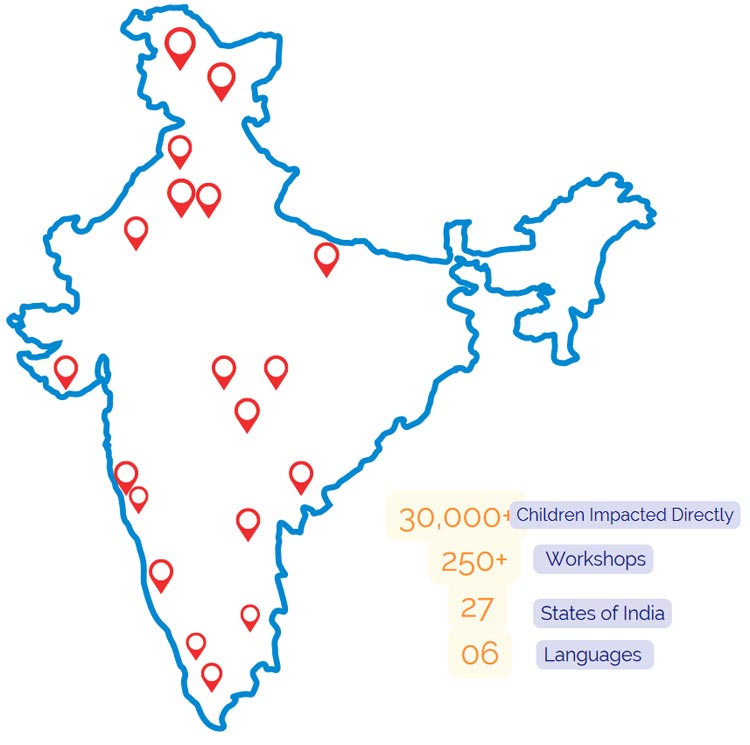
States and UTs Covered:
Delhi, Haryana, Uttar Pradesh, Punjab, Maharashtra, Madhya Pradesh, Telangana, Karnataka, Tamil Nadu, Kerala, West Bengal, Manipur, Sikkim, Chhattisgarh, Jammu & Kashmir, Ladakh
Languages:
English | Hindi | Marathi | Kannada | Bengali | Telugu |
Engagement with Key Stakeholders
|
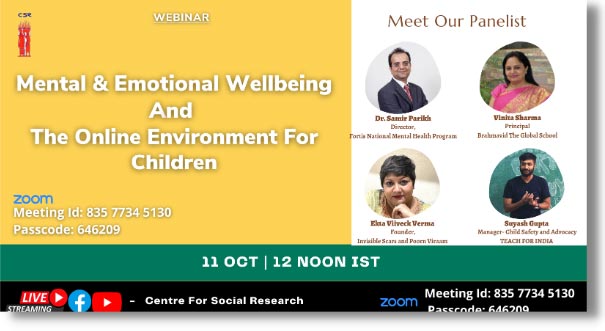
The virtual discussion on Mental and Emotional Well-being and the Online Environment for Children focused on the mental, physical and emotional challenges experienced by children amidst the pandemic, the subsequent lockdown, closure of schools and shifting of physical classrooms to virtual ones. The conversation revolved around online education, stress & confusion about the reopening of schools and the pressures on students with rapid changes in their environment. |
|
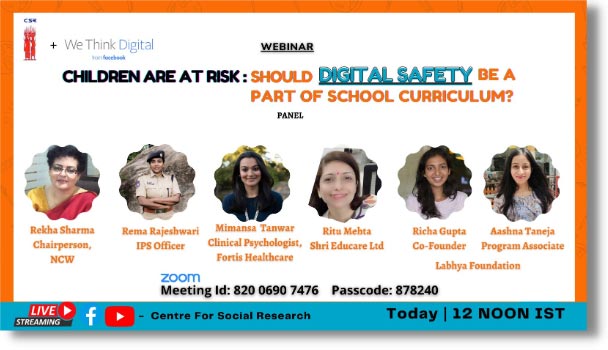
Another webinar in the series on the topic of Should Digital Safety become a Part of School Curriculum focused on policy solutions towards the future of children, correct education, information and awareness on digital safety. The discussion brought to light two important aspects of the current education system which should include mental health as well as socio-emotional learning as important components of school pedagogy |
|
MEDIA COVERAGE
|
- The South Asia Centre of the London School of Economics & Political Science published an article "Growing up in a Digital World: Vulnerabilities of Children in Post-pandemic India" written by CSR’s Assistant Project Coordinator, Shruti Das. It focussed on the impact of online threats students faced due to the closing down of schools during the Covid-19 pandemic.
- Page One Asia published an article "Children and their Rights to a Safer Digital World" written by CSR’s Senior Project Coordinator, Jyoti Vadehra. It discussed the importance of CSR's initiative - Digital Safety & Online Well-Being for students.
- Feminism In Indiapublished an article "There is a Need to Focus on the Psychosocial Well-Being of Children in Covid-19 Times" written by CSR’s Assistant Project Coordinator, Shruti Das. It focussed on the importance of the socio-emotional well-being of children in education using the component of gender.
|
COLLABORATIONS
|
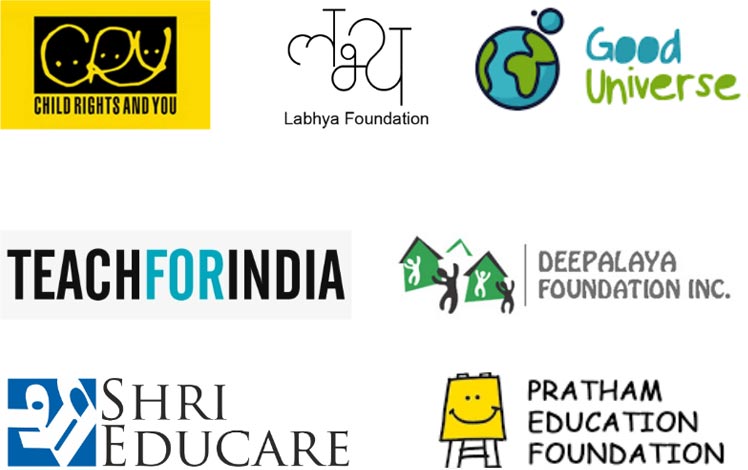
Online Safety has been an absolute imperative, and became more so due to the Covid-19 pandemic, which pushed children into the online space for education and leisure activities. Hence, we collaborated with organisations like - Child Rights & You, Teach for India, Pratham Education Foundation, Deepalaya, ShriEducare amongst others for the "We Think Digital" Workshops which sought to expand the dialogue of 'Online Safety & Security' with young minds.
It was an opportunity to raise awareness and empower students across India. As stakeholders, it’s important to navigate children through the perils of the online space. Through these training workshops, we seek to capacitate children on issues of online threats, fake news and empower them towards positive online engagement, digital wellness, and many other skills and tools required to use the space positively and effectively. |
PARTNERSHIP REVIEW
|
|
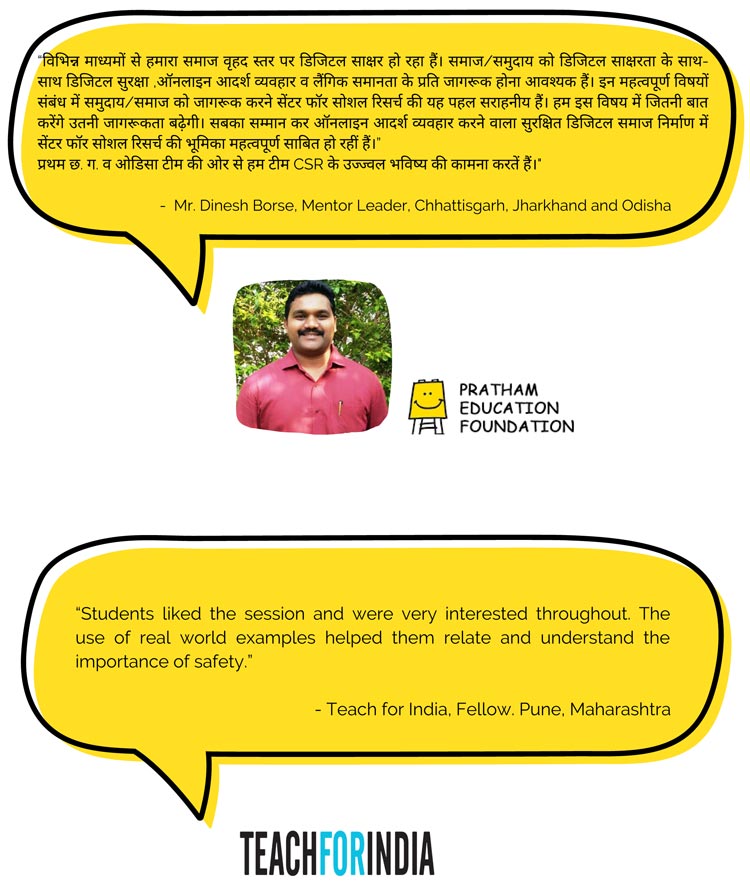
|
Digital Citizenship And Civic Participation
For
Gender Equality
|
|
The boom in usage of digital platforms for expression has also given rise to a great cause of concern. The representation of women and girls on these platforms lags significantly behind men and boys, in India. According to a UNDP report, among the youth social media users, the majority of 78% are men while only 22% are female. This is in contrast with the population proportion of youth, which is almost 50% female according to the census of India.
Issues like - online harassment and bullying, parental concerns about whom girls are engaging with, and negative online experiences can limit women’s willingness and ability to express themselves well. Many leave the platforms entirely, rather than suffer abuse and/or harassment. In this way, social media has become a place where women's voices are not adequately represented and women are not fully empowered to participate. It is essential for everyone to build youth capacity to engage safely and effectively.
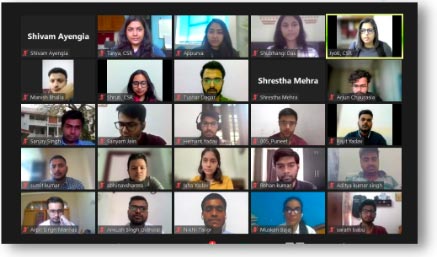
Glimpse of virtual workshop with youth of Delhi School of Economics |
|
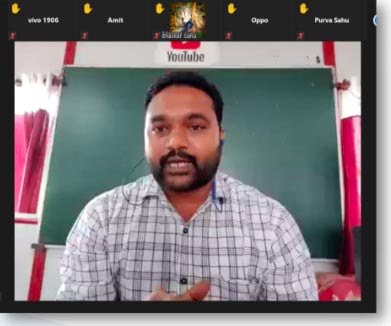
Interaction with organizers during the workshop
Centre for Social Research in collaboration with Twitter India conducts Digital Citizenship & Civic Participation for Gender Equality Workshops for the youth across India. Through the training, we seek to empower young women and men in their engagement in the civic dialogue on social media and also influence policy development on issues of gender equality on digital platforms.
Since the beginning of the year 2020, we conducted 20 workshops with 60+ colleges in 10 states impacting 7500+ students directly.
Project Goal:
- Increase access to digital citizenship programming for college students
- Encourage more young women to use social media as a platform for engaging in public discourse
- Increase MP understanding of digital safety and citizenship issues
- Increase effective government engagement on issues of women’s digital safety.
|
|
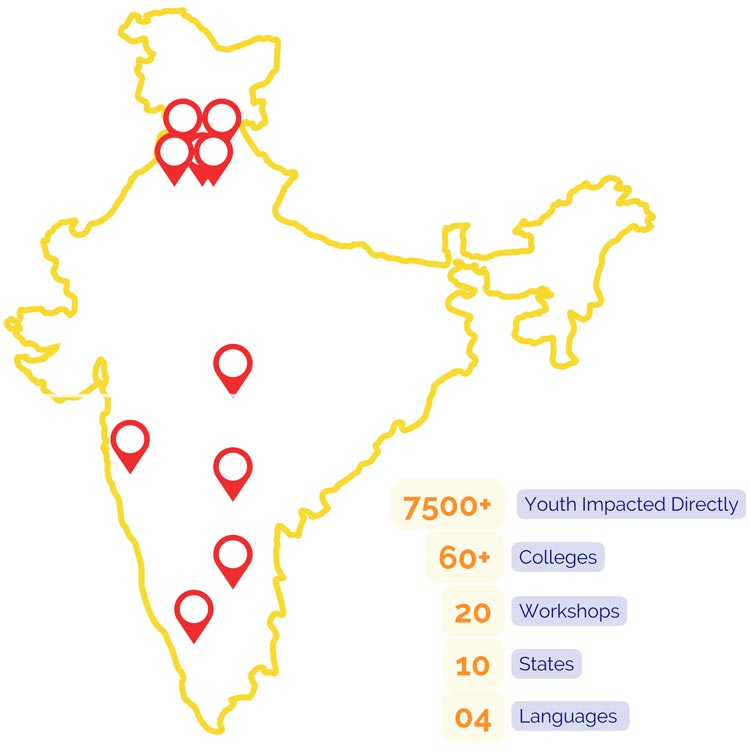
States and UTs Covered:
Delhi, Haryana, Uttar Pradesh, Punjab, Telangana, Karnataka, Chhattisgarh, Maharashtra, Madhya Pradesh, and Tamil Nadu
Languages:
English | Hindi | Marathi | Kannada |
|
|
Our youth ambassador program successfully recruited passionate students who believe in inclusive and safe digital spaces. They are successfully leading the campaign in their respective college and communities.
Our current youth ambassadors are:
|
YOUTH AMBASSADORS' SPEAK
|
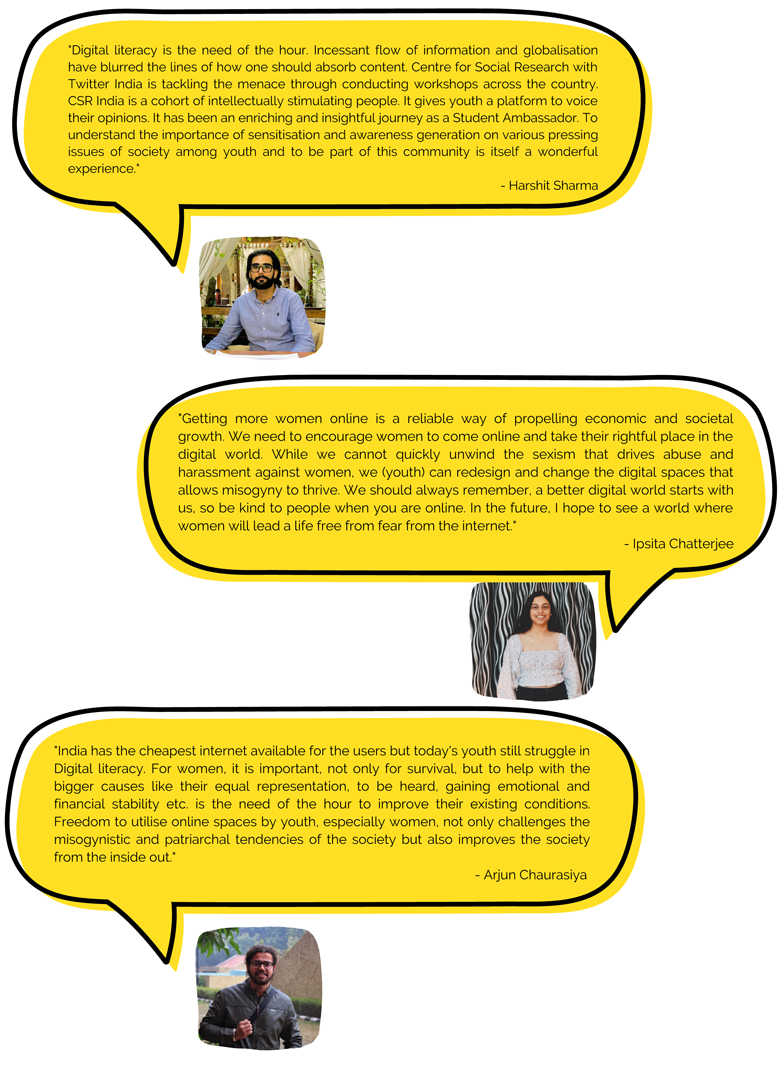 |
MENTORS
|
Individuals from different walks of life, including from the Media industry, Healthcare industry and the Development sector, as well as national organizations have joined our cause. Young student ambassadors are also taking charge and leading their peers towards a safer digital
future.
|
ORGANIZATIONAL COLLABORATIONS
|
|
CSW65 - DIGITAL SAFETY & CITIZENSHIP DEVELOPMENT
|
|
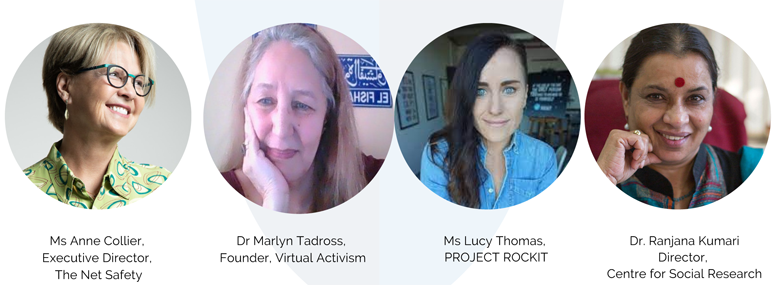 |
|
The CSW 65 consultation organized on March 15, 2021, saw participation from the following panelists:
- Ms Anne Collier, Executive Director, The Net Safety
- Dr Marlyn Tadross, Founder, Virtual Activism
- Ms Lucy Thomas, PROJECT ROCKIT
- Dr Ranjana Kumari, Director, Centre for Social Research
The consultation witnessed unanimous agreement amongst the panellists regarding the disproportionate impact of online harms on women. |
|
The discussion brought forth the concerns of access faced by women and the socio-economic effect of gender-based violence in the digital space. The panelists emphasised the role of policies centred towards furthering gender equality to ensure effective dissemination of empowerment mechanisms like counter-speech. Social media platforms too were noted to be an integral part of the solution as the experts noted the significance of adhering to the norms enshrined under the Santa Clara Principles on Transparency and Accountability to ensure fairness in content moderation practices. |
|
|
DIGITAL SPACES AND YOUTH |
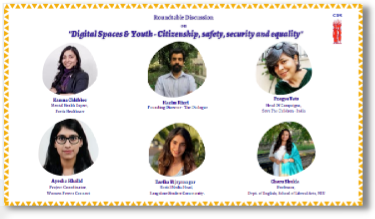 The first discussion entailed an analysis of the safety challenges faced by youth on online platforms, ill effects of prolonged screen time on the psychological well-being of adolescents and young adults in addition to the harms caused by exposure to sexually abusive online content. With Ed-tech becoming the new normal, privacy, threats and other concerns around access for youth from marginalised communities were discussed. The need to devise implementable solutions for these challenges through training programs for parents and teachers to ensure the digital well being of youth and capacity building of law enforcement personnel for timely prosecution of cyber-criminals were some of the key recommendations proposed. The first discussion entailed an analysis of the safety challenges faced by youth on online platforms, ill effects of prolonged screen time on the psychological well-being of adolescents and young adults in addition to the harms caused by exposure to sexually abusive online content. With Ed-tech becoming the new normal, privacy, threats and other concerns around access for youth from marginalised communities were discussed. The need to devise implementable solutions for these challenges through training programs for parents and teachers to ensure the digital well being of youth and capacity building of law enforcement personnel for timely prosecution of cyber-criminals were some of the key recommendations proposed. |
INCLUSIVE AND SAFER ONLINE PLATFORMS |
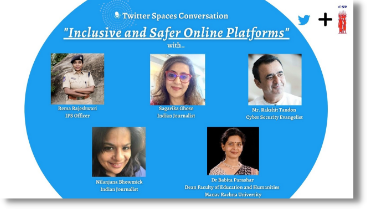 The second discussion focused on Inclusive and Safer Online Platforms, importance of sensitisation and capacity building efforts of the internet users along with understanding the exact challenges grappling the criminal justice machinery in cyber-crime matters. We analysed the challenges responsible for the continued digital divide and its impact on the lives of women alongside the peculiar challenges impacting the digital well-being of youth. This is followed by deliberation on the way forward for creating a safer and inclusive online space through evaluation of the international best practices and delineation of the role of each stakeholder towards fulfilling this objective. The second discussion focused on Inclusive and Safer Online Platforms, importance of sensitisation and capacity building efforts of the internet users along with understanding the exact challenges grappling the criminal justice machinery in cyber-crime matters. We analysed the challenges responsible for the continued digital divide and its impact on the lives of women alongside the peculiar challenges impacting the digital well-being of youth. This is followed by deliberation on the way forward for creating a safer and inclusive online space through evaluation of the international best practices and delineation of the role of each stakeholder towards fulfilling this objective. |
Crisis Intervention Centre
|
|
CSR’s Crisis Intervention Centre’s (CICs) in Delhi provide support to the individuals and families experiencing or witnessing Gender-Based Violence in their homes, public spaces or elsewhere. Our experienced counsellors provide free and confidential support services including emergency assistance and more. CSR strives towards creating a violence-free environment for everyone. We are members of 27 Internal Complaints Committees (ICCs). CSR is the nodal agency of the National Commission Of Women (NCW) in providing E-counseling to survivors of GBV. We have an established network of 30 NGOs to exchange information and provide survivors and victims a comprehensive range of services (e.g., Protection Officer, hospitals, police stations, shelter homes) and referral links for legal and psychological support. |
|
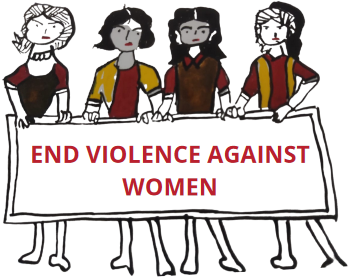
Our Senior Counsellor also addressed an online meeting on “Experience of dealing with DV cases during the lockdown’. Our CIC has registered approximately 42 domestic violence cases in this quarter. |
|
|
The Centre for Social Research launched its PODCAST series “Unite For Equality” in November, 2020. The Podcast series engulfs narratives of Gender Equality, gender-struggle, women's rights and representation. In 2021 we came out with the second season of the podcast with a lineup of 8 incredible episodes that are wide ranging and commemorates fierce and inspiring conversations and experiences. |
|
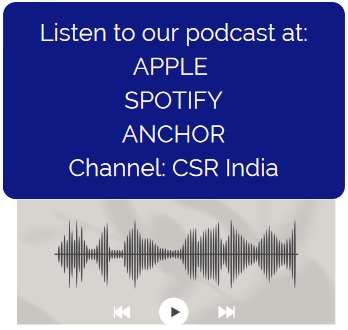
|
|
|
|
Through our dedicated social media handles, on various platforms, we create regular content and posts to maintain awareness and interaction about all the causes we work on. And continue our efforts to host online discourse and discussions with experts and our followers through #TweetChats about online safety, domestic violence, mental health wellness, reinventing youth skills post pandemic, and etc. Following are few of the campaigns we have worked on this year.
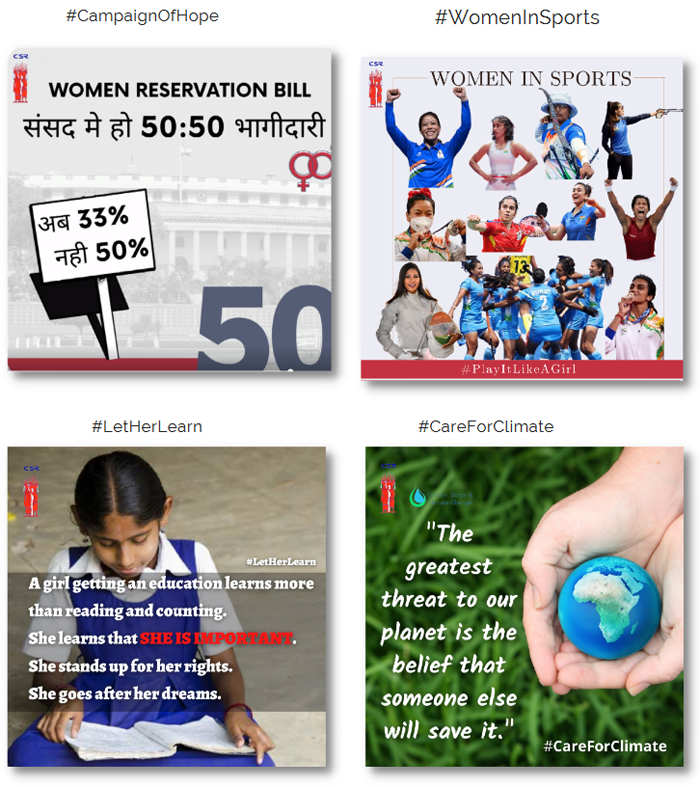
|
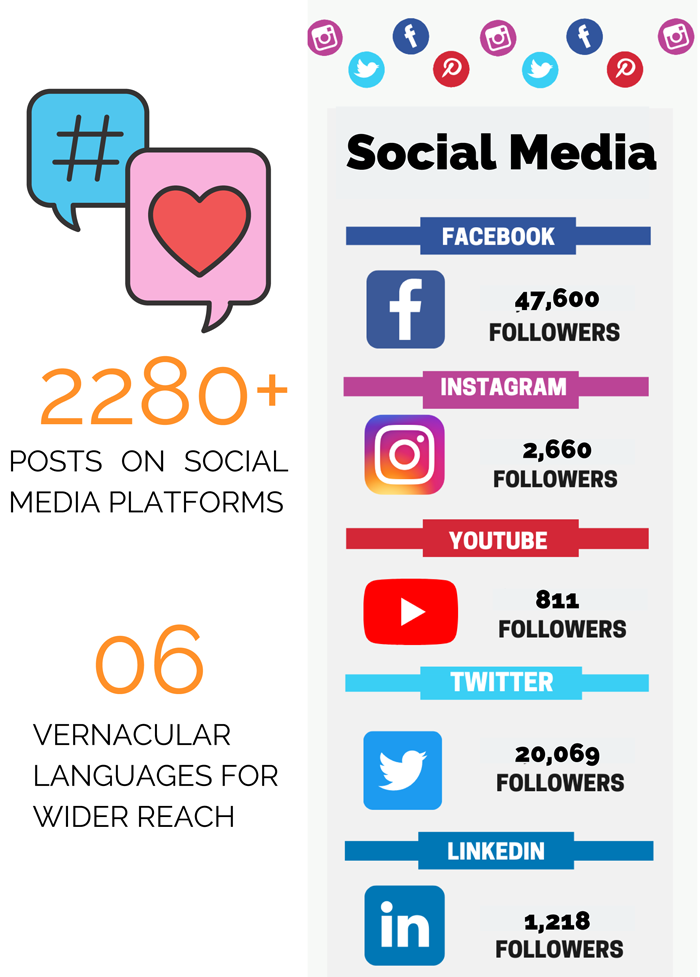
|
16Days Of Activism
16 Days of Activism Against Gender-Based Violence is an international campaign to challenge violence against women and girls. The campaign runs every year from 25 November, the International Day for the Elimination of Violence against Women, to 10 December, Human Rights Day. It is used as an organizing strategy by individuals and organizations around the world to call for the prevention and elimination of violence against women and girls.
CSR'S Efforts:
We at the Centre for Social Research ran our campaign #HerCourage to #EndViolenceAgainstWomenNOW by bringing to the fore the challenges that women face in their daily lives due to the threat of violence, and also gives concrete recommendations on how these threats can be dealt with in the best way.
We created content with the support of stakeholders like counselors, lawyers, human rights activists, healthcare specialists, etc. on their perspective to the problem and their inputs on the solution.
We urged people to join us by, Sharing the story of #HerCourage.
Sharing #UncomfortableQuestions, they want to ask the society at large.
Their thoughts on #ViolenceAgainstWomen
We received videos from all across India of people sharing their views on creating a gender inclusive and equal world. We also received immense support from like-minded individuals and organizations like: |
|
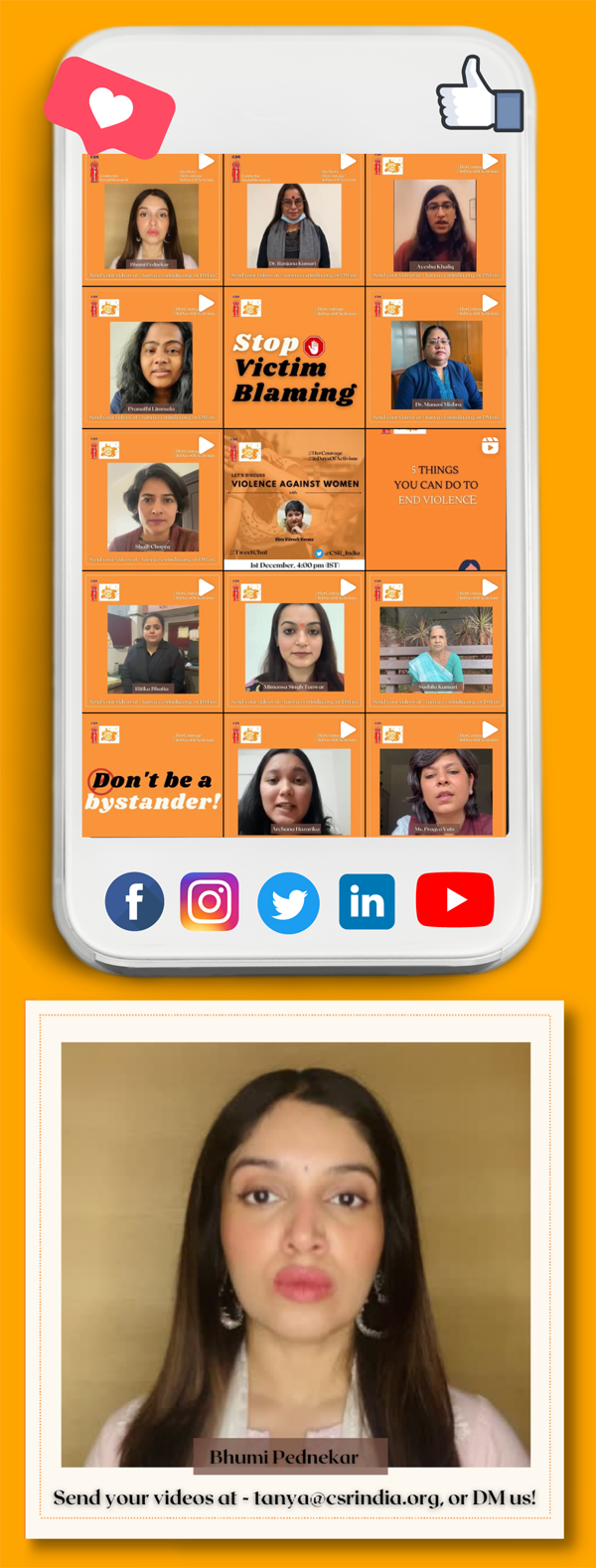
Ms Bhumi Pednekar
a well known name in Indian Cinema |
|
- Ms Hasina Kharbhih (Kharbhee), Founder and chairperson of Impulse NGO
- Ms Shaili Chopra, Founder of She The People Platform
- Ms Mimansa Singh a mental health professional from Fortis Healthcare
- Ms Pragya Vats, Head of Campaign, Save the Children organisation
- Ms Gayatri Sharma, from Women Power Connect Organization
Violence against women is a human rights violation, effecting both their physical and mental health. To have an in-depth discussion about this grave issue we conducted a #TweetChat on 1st Dec with the concerned stakeholders. The #TweetChat was hosted by Ms. Ekta Viiveck Verma. Her work involves fighting against #GenderBasedViolence with focus on #DomesticAbuse & #Rape. She is a founder of the initiative #InvisibleScars and #PoornViraam. During the campaign we published two episodes on our podcast “UNITE FOR EQUALITY” on the issues of crisis intervention and women political leadership.
On the last day of the campaign, 10th December which was also Human Rights Day, we organized a

|
|
Twitter Spaces conversation on "Women Rights are Human Rights". Following speakers joined us for the conversation
- Ms Sanjukta Basu, Editorial Consultant with National Herald
- Dr. Samir Parikh, Director of Fortis Mental Health & Behavioural Sciences Department
- Dr. Manasi Mishra, Head of Research Division, Centre for Social Research
A large number of people joined us to hear the conversation, some of them also shared their views with us regarding the issue of violence against women and gave and gave concrete suggestions to end it.
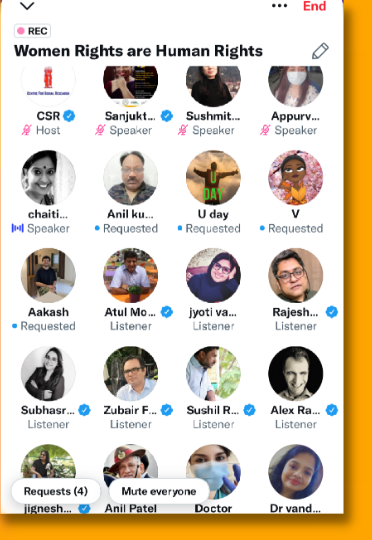
|
|
Evidence Based Research
|
|
CSR conducted evidence-based research to understand the gendered impact of COVID-19. The research was conducted in 16 targeted districts and more than 600 samples were collected by the team. Following are some of the findings of the research:
- The study was conducted in 11 districts of Delhi and 5 districts of Haryana between the periods of March-May 2021.
- The study was conducted in all the 11 districts of Delhi and 5 districts of Haryana between the periods of March-May 2021.
- Overall, there were a total of 574 responses collected via the online questionnaire. Out of these 506 were female (88.2%), 65 were male (11.4%), and 3 (0.5%) chose not to answer the demographic profile section of the survey.
- 63.5% of the respondent voiced that 'loss of income has been the biggest problem people faced during COVID-19.
- According to the present study, the mortality rate of both men and women due to COVID-19 is equal as stated by the majority of the respondent (38.5%) Pandemic has exacerbated women's access to healthcare facilities.
|
|
- Lack of awareness about the COVID-19 symptoms and precautions amongst women in all the 16 districts as 92% of the respondent said that they were not infected by COVID even if they had fever and cough. This may be attributed to either ignorance or social stigma in accepting that one has COVID.
- COVID-19 Pandemic has thrown an unprecedented challenge for the mental health of all community members and frontline healthcare workers.
- Around 61% of the respondent agreed to the fact that mental health issues do exist. There exists a gender gap in vaccination drive. Only 47% of the respondent had both the vaccination shots.
- Misinformation regarding vaccination prevails, pregnant and lactating women do not have clear information.
- 29.4% of the respondent suggested that the pandemic-induced lockdown had increased control of the victim by the perpetrator at their homes and the nearby vicinity.
|
|
National & International Webinars
|
|
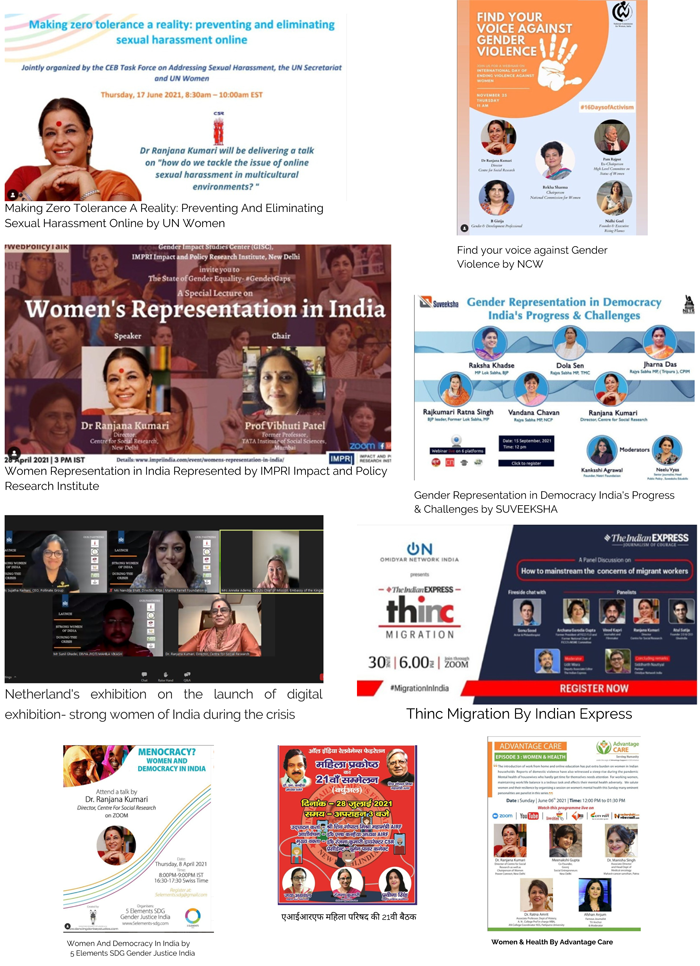
|
|
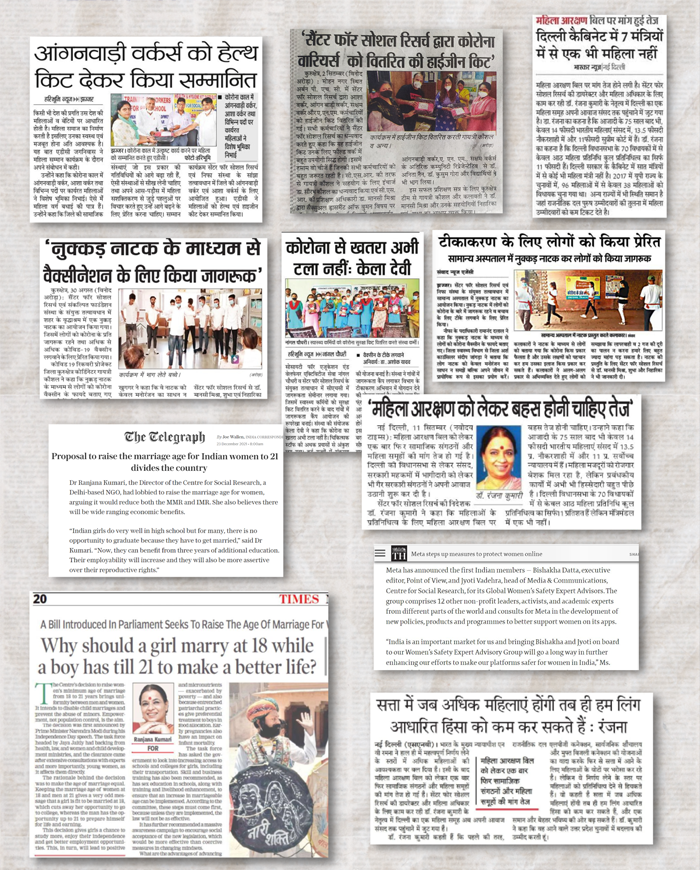
|
Note Of Gratitude To Partners
|
 |
|
The Australian High Commission supported CSR’s COVID-19 response to the second wave through support for mobilization of youth champions to raise awareness of COVID response and vaccination programs in Delhi and Haryana. |
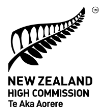 |
|
The New Zealand High Commission supported CSR’s COVID-19 response to the second wave. Their support provided hygiene and medical kits across the project area and supported engagement with local health workers for capacity building and awareness generation. |
 |
|
Through the CFLI, the Canadian High Commission is supporting CSR’s COVID recovery program in Delhi, which is providing support for victims of domestic violence, capacity building for communities and healthcare workers, hygiene resources, and advocacy for investment in women’s health. We welcome the Canadian High Commission as a new funding partner. |
 |
|
InThe Dutch Embassy is supporting CSR’s efforts to support retention of girls in school and prevention of early marriage in the wake of the COVID-19 pandemic. Earlier this year, the Dutch Embassy also supported second wave response through support for domestic violence response in three targeted districts. |
 |
|
The Asia Foundation India supported CSR’s COVID-19 response to the second wave, providing support for activities in two target districts of Delhi. The Asia Foundation India is supporting CSR's research and advocacy on gender mainstreaming in India’s foreign policy. The Asia Foundation India is supporting CSR’s skill training program to train and link young women with entry-level jobs in the formal sector. |
 |
|
In 2021, CSR continued its training partnership under the We
Think Digital program with high school students across India and
hosted a range digital events and publications on the
importance of digital safety education. |
 |
|
Twitter and CSR are partnering on a 2021 program to build
young women’s engagement on social media, support them in
practicing digital safety, and engage with regional influencers
on Twitter |
 |
|
CSR and FHI 360 are partnering on an ongoing program to advance
women’s economic empowerment and economic rights. The
program highlights best practices in women’s mobilization for
economic rights in India. |
 |
|
HSS is a long-term partner with CSR, having supported our work
on women’s leadership in water conservation since 2012. Our
partnership with HSS is continuing in the upcoming year with a
project in Karnataka, working with communities and stakeholders
to identify gaps in the coverage and implementation of the Jal
Jeevan Mission |
 |
|
CSR and Honda have been working together since 2018 to
address water conservation and quality issues in Honda’s target
areas of Alwar Rajasthan.
CSR has worked with SHG groups to plan and refurbish water
infrastructure in targeted districts. CSR is continuing the
partnership with Honda in the upcoming year with an expansion of
the conversation work in Alwar |
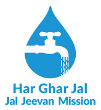 |
|
CSR has been empanelled with the Government of India’s Jal
Jeevan Mission for partnerships on water management in Punjab.
CSR is pleased to be starting a partnership with the DWSS in
Punjab to apply our test model of community governance in
expanding access to piped water supply in Punjab |
 |
|
CSR is pleased to beginning a new partnership with GAIL India,
who is supporting the Sports for Girls program in Haryana which is
supporting mobilization and support in girls in hockey and
volleyball to support confidence-building and community support
for girls’ development. |
|
Testimonials
|
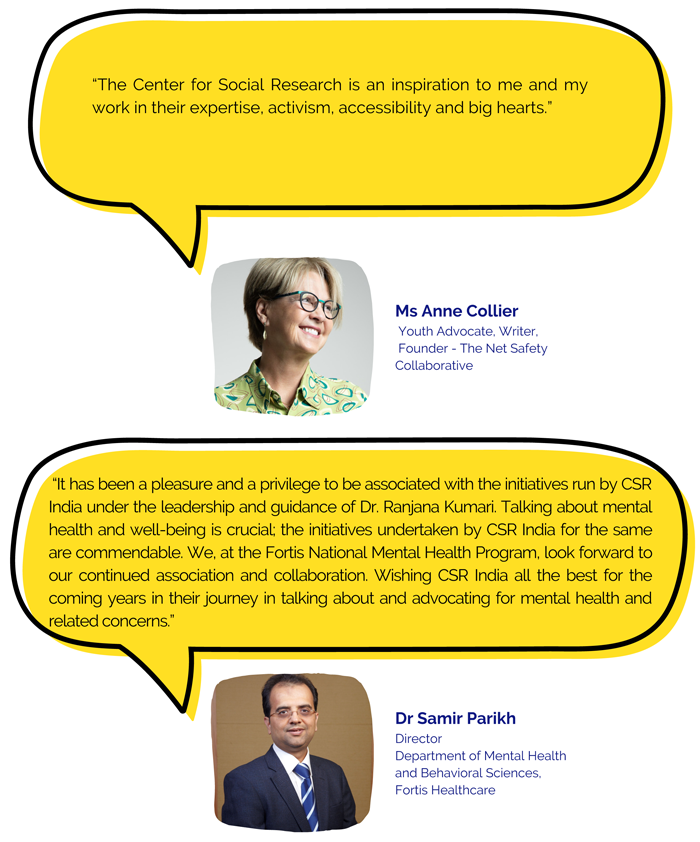 |
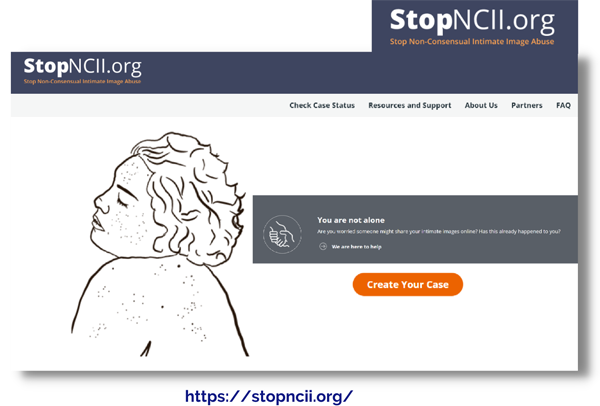
To ensure women’s safety on social media platforms, Meta has rolled-out
StopNCII.org as a preventative tool to combat sharing of non-consensual intimate
images. Stop NCII is an initiative to help individuals and victims by removing non-
consensual intimate images (NCII) from the internet.
The safety of every individual should be a priority while using digital technologies,
therefore we at CSR are proud to be associated with Meta's initiative as a global
partner.
Ms Jyoti Vadehra, Head, Media & Communication Dept. Centre for Social Research is
one of the first Indian members of Meta's Global Women’s Safety Expert Advisors.
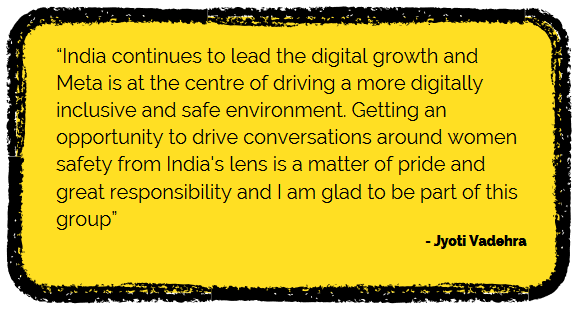
|
Financial Summary (2020-21)
|
| ASSESTS |
(AMOUNT IN LACS)
AMOUNT |
| Fixed Assets |
1,441.19 |
| Investments |
442.18 |
| Grants Accrued But Not Received |
19.22 |
| Sundry Receivable |
128.38 |
| Cash & Bank Balance |
350.64 |
| |
TOTAL : 2381.61 |
| LIABILITIES |
AMOUNT |
| Society Funds |
1,751.02 |
| Capital Funds |
510.05 |
| Unspent Project Grant |
50.52 |
| Current Liabilities & Provisions |
70.02 |
| |
TOTAL : 2381.61 |
| |
|
|
| INCOME AND EXPENDITURE ACCOUNT |
| INCOME |
(AMOUNT IN LACS)
AMOUNT |
| Grant Available For The Year |
203.09 |
| Donation And Other Income |
13.94 |
| Interest Received From Investments |
38.16 |
| Rent Received |
105.48 |
| |
TOTAL : 360.37 |
| EXPENDITURE |
AMOUNT |
| Total Project Expenses During The Year |
243.47 |
| Building Maintenance |
15.03 |
| Administrative Expenses |
46.67 |
| Excess Of Income Over Expenditure |
55.20 |
| |
TOTAL : 360.37 |
|
Eulogy
|
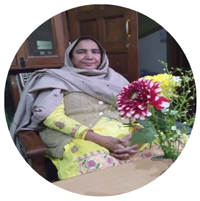 Late. Smt Sumitra Devi
On 21/12/2021 we lost one of our Members. Our Dearest Sumitra Devi passed away after prolonged illness due to severe diabetes.She was an invaluable member of the CSR team for almost three decades. She worked hard to set up our counseling centre to help support Women Victims of Domestic Violence. She was dedicated to the cause of Women empowerment and fought against all forms of injustices against women. She was a role model and pillar of strength.
A fearless and committed strong community leader, she got the UNIFEM Award which she received in Australia. A long Associate of CSR, and my personal friend ,we will all miss her inspiring presence.
CSR members pay our respect to her memory.
Om Shanti |
Follow Us On Social Media:
|
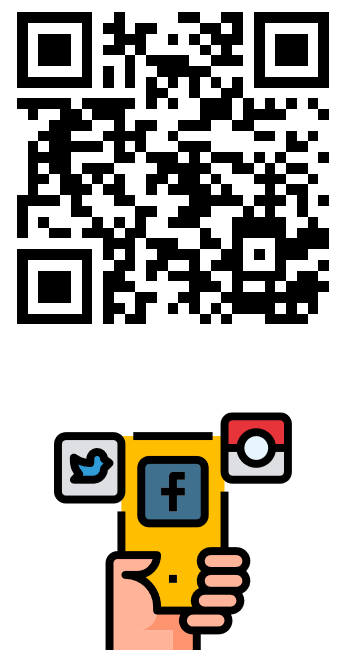 |
 |
|
|
FROM THE DIRECTOR'S DESK
With the atmosphere of fear and uncertainty that is characteristic of the global pandemic, an important question arises on our future roles and contributions. Organizations and NGOs such as ours, work in collaboration with the government’s control mechanisms.
At the same time, NGOs are a key link in the government programmes' implementation value chain.
Hence, it is unquestionable that without the presence of NGOs, any progress and deep impact of the Centre’s initiatives are unlikely. In these times stricken by anxiety and volatility, CSR understands the need for adaptability and flexibility in approach and thus, our initiatives have broadly been re-structured around safety, family, society, education, health, skill development, employment engagements and environment for the marginalized populations.
During these unprecedented times, we are primarily concerned with women’s empowerment. There is a strong patriarchal structure that is behind the marginalization of women, which has become even more evident in the post-pandemic year, with a surge in child marriages and domestic violence. The heavily gendered roles and limitations that exist in household relations have come to the forefront, as a result of the pandemic. We believe that it is important to recognize, analyse and address these basic gender relations at the household level so that any real change can take place. Our initiative for ‘16 Days of Activism', as part of the international campaign addressed the issues of gender-based violence against women and girls.
Through amplifying violence against women using social media tools such as a video campaign, tweet chats and podcasts, we enabled mainstream media dialogue on the challenges that women face in their daily lives due to the threat of violence. As an organization, we attempt to define what empowerment means for Indian women and establish accountability as an important part of the process. It is the notion of community empowerment that we work towards, in addition to individual empowerment. We allocate our resources to women’s empowerment workstreams such that, a strong accountability relationship is built. This is evident through our wide-ranging programmes on women's skill development, women’s relief response to covid-19, e-counselling for domestic violence survivors and training of frontline healthcare workers. It is because of all these efforts that the idea of 'empowerment of women is gradually gaining currency.
This is a period that is undergoing a rapid structural change because of the after-effects of the pandemic. Hence, it is a period of remedial developments, adaptability, and agility. What this means for CSR is that these are uncertain times with changing aid dynamics. Still, we have managed to garner support from several donors and partners, to create synergies and collective impact. With that being said, our aim is to be classified as an effective, adaptable and, result-oriented NGO.
CSR has threefold focus areas - grassroots, research and advocacy matters. We have a well established grassroots network, driven by strong social change, mainly through women's empowerment programmes wherein people are being trained regularly in order to build up their capacity and competence. Our research wing emphasizes evidence-based gender mainstreaming across development activities and, conceptualizes enrolment, retention and, training programmes for sports and education initiatives. With respect to advocacy- political leadership of women, gender sensitization and digital citizenship are our key concerns.
In conclusion, I’d like to state that CSR aims to make a difference. At each landmark stage, we acknowledge our unsung heroes, the strong Indian women standing at the forefront of harsh circumstances. Our inspiration comes through this indomitable spirit, which we aim to imbibe in our development practice. I express my gratitude to the team for facilitating interactions with partners and appreciate the inputs on intellectual developments and ideas, despite limitations faced in day-to-day work.